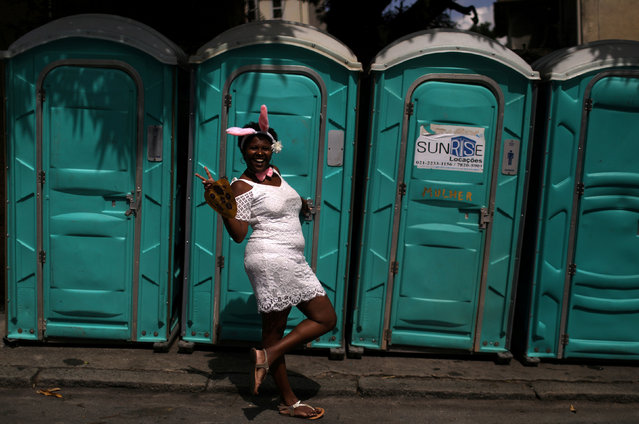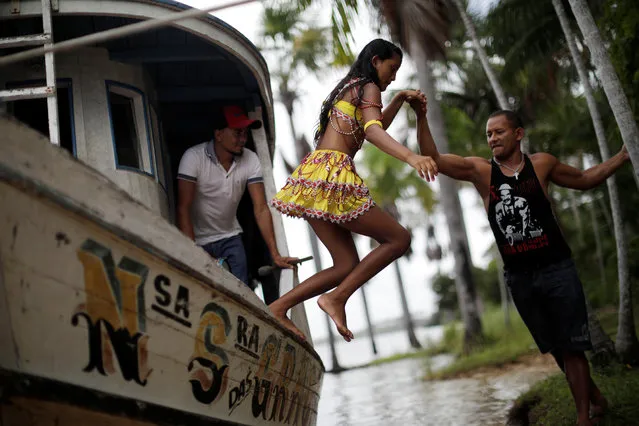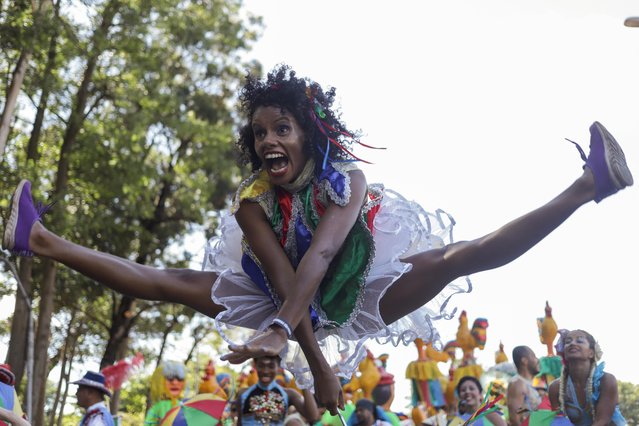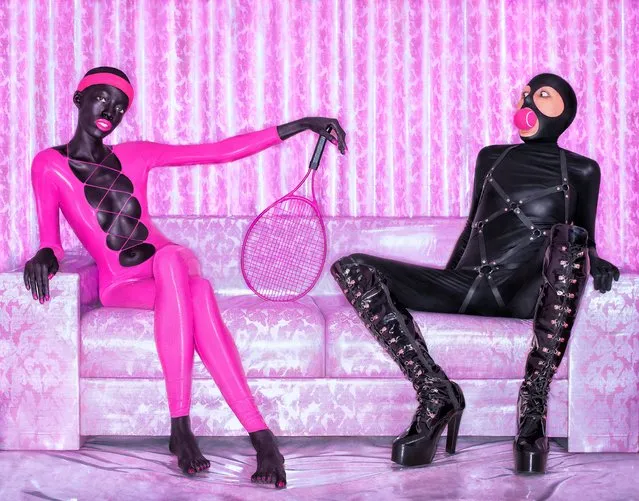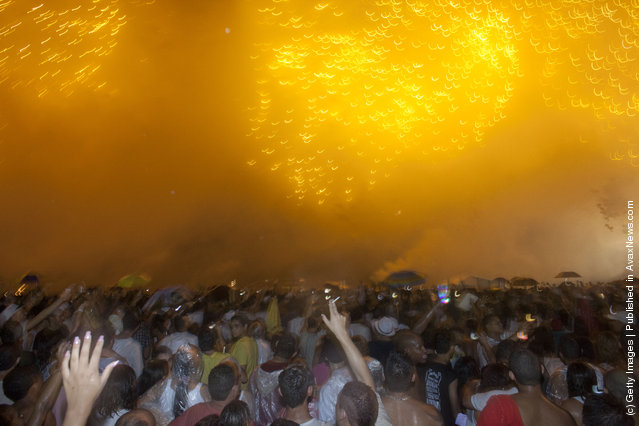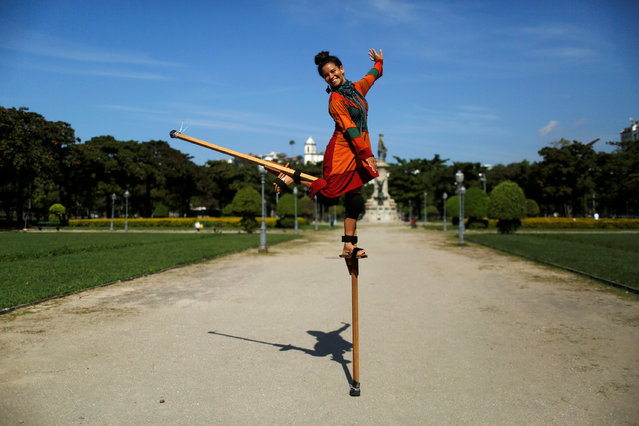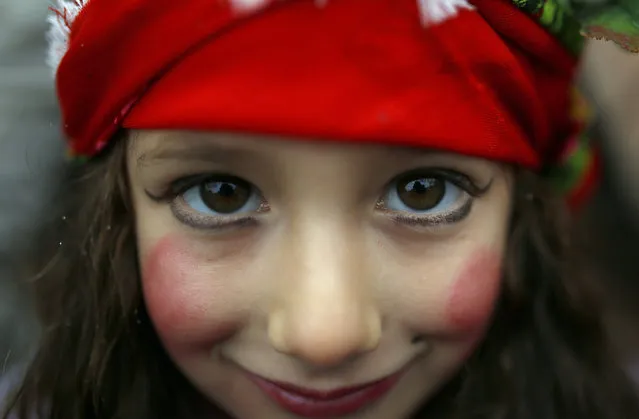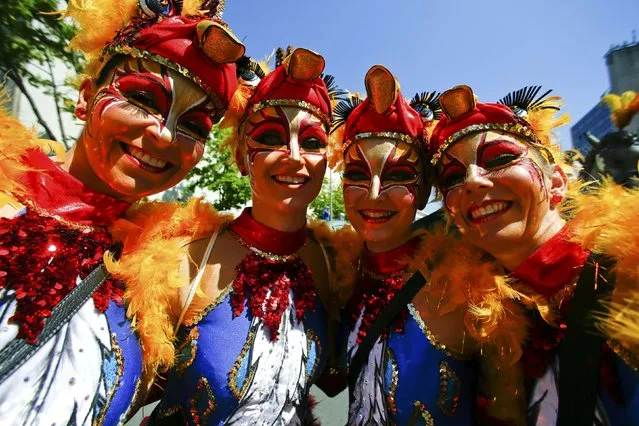
Carnival revellers pose during the postponed “Rosenmontag” (Rose Monday) parade in Mainz, Germany, May 8, 2016, after the original parade in February was cancelled due to severe weather. (Photo by Ralph Orlowski/Reuters)
09 May 2016 09:00:00,post received
0 comments

